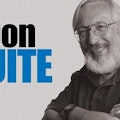If you’re an analog designer, stop and think for a minute about power. It’s a funny thing, but all this electronic stuff tends to run on electricity. This is a plug (bad pun!) for APEC, the Applied Power Electronics Conference, which happens in Washington, D.C., Feb. 15- 19. There’s plenty there for non-power engineers, too. This came up in a conversation I had with Kevin Parmenter, the general chair of this year’s conference.
“I was talking with a group of designers at a company making embedded controller boards who needed a great deal of help and support and were willing to accept advice to simplify and improve their designs. I mentioned that the APEC conference is a great way to gather information on products, services, suppliers, and technologies, which could help greatly. They were unaware of the conference. However, when they reviewed the Web site, they quickly made plans to attend,” Parmenter said.
Parmenter realized that while the conference’s organizers have done a good job of letting the traditional power electronics community know about the show’s value, APEC also has lots of information to offer the “casual” or “embedded” power designer. In fact, the conference aims to inform this audience and help cultivate expertise within these companies so engineers who are called upon to perform power design for embedded systems, industrial controls, avionics, medical equipment, or whatever will be successful.
The conference organizers believe engineers can achieve quicker success by attending APEC and learning from the many networking opportunities, educational seminars, and courses available. That way, power electronics knowledge can widen to a broader audience than the regular crowd that practices power electronics every day.
“Power electronics designs are performed by several groups in industry today. One group is very experienced with power electronics designs, including all the necessary time, equipment, agency approvals, thermal testing, EMI-RFI, and so forth. This group would be considered the expert class who design power electronics systems for volume production every day,” Parmenter said.
“Another group of individuals includes engineers who specify or take requirements and then look for solutions to piece together systems. The types of things they look for are either custom or off-the-shelf ac-dc converters and POL (point of load) converters, which are either modules or solutions from semiconductor suppliers, which are easily assembled to specification—simple switcher types of parts, for example,” he said.
Parmenter also described a third group that has been chartered with designing power electronics within companies that traditionally don’t focus on power electronics. These engineers may be digital designers or systems or software engineers who have developed products and systems with bench supplies and find they have to complete a power electronics system design, usually quickly, where the solution may not be off-the-shelf or something they want to design themselves.
“Sometimes they rely on the FAEs (field application engineers) at semiconductor companies who can only spend a few days on a design, and the customer may or may not get the best support possible,” Parmenter said.
That’s the pitch from a guy who ought to know. Parmenter has put in serious design time with Motorola and On Semiconductor, and he consults now when he isn’t focused on the conference. He says that particularly for designers on the East Coast, this APEC will be an especially good opportunity to network.
For more information, see www.apec-conf.org.
About the Author

Don Tuite
Don Tuite (retired) writes about Analog and Power issues for Electronic Design’s magazine and website. He has a BSEE and an M.S in Technical Communication, and has worked for companies in aerospace, broadcasting, test equipment, semiconductors, publishing, and media relations, focusing on developing insights that link technology, business, and communications. Don is also a ham radio operator (NR7X), private pilot, and motorcycle rider, and he’s not half bad on the 5-string banjo.